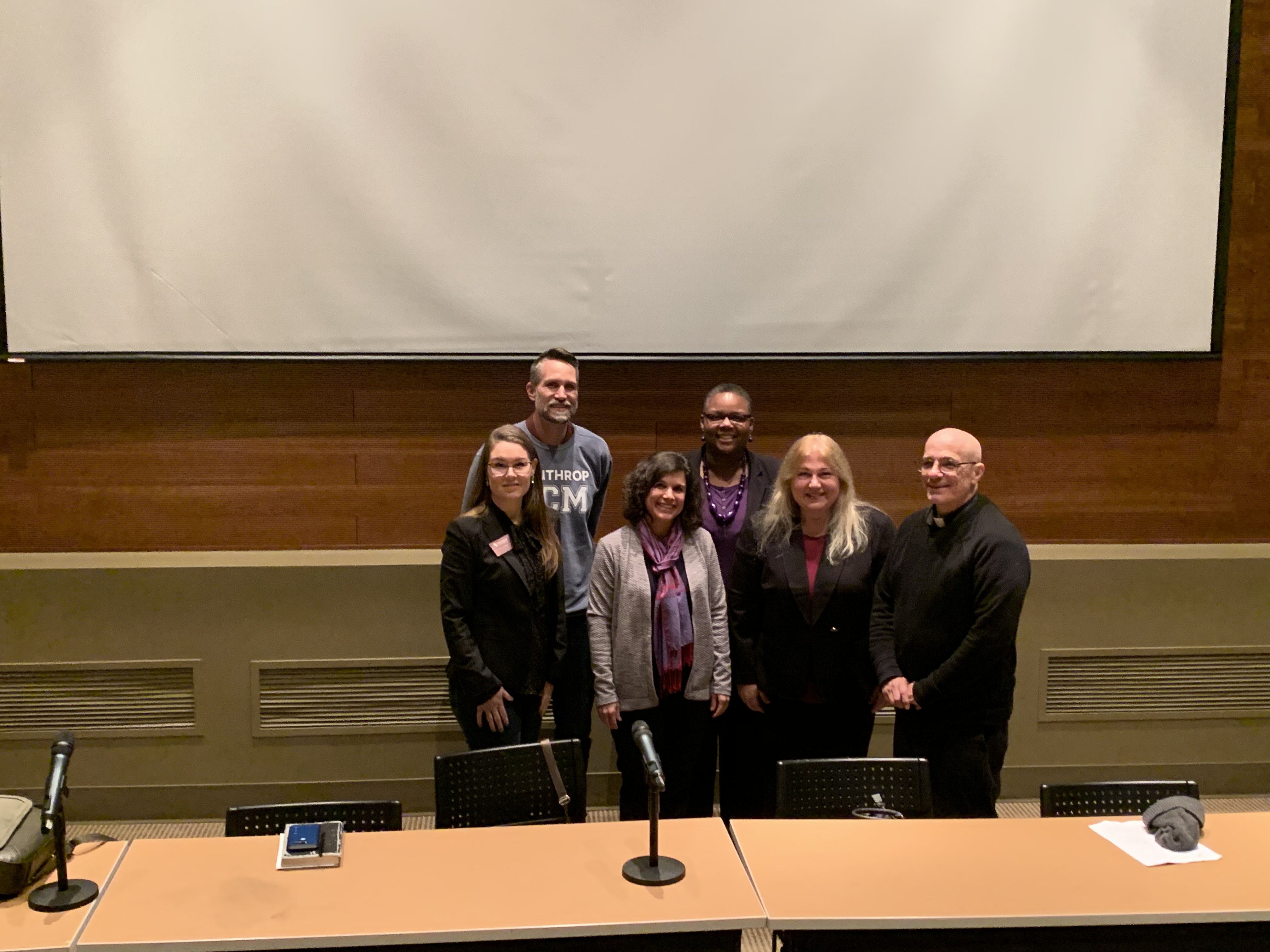Mental health remains a popular topic, particularly on college campuses, and a recent panel held at Winthrop University looked at the intersection of faith, religion and mental health struggles.
The event — titled Does God Care About My Mental Health? — has been in the works since the fall semester and was a joint effort between staff counselor and outreach coordinator Jessica Hudgens and Olga-Maria Cruz, who is the minister for Winthrop’s Epsicopal Lutheran campus ministry.
Cruz said the reason this event was created was to start a conversation with students about the idea that those who have a “strong faith” do not need mental healthcare, which the panelists agreed is a misconception. Furthermore, the event was created to help shift the apparent campus culture and have students be more open to receiving and asking for help.
Cruz said she experienced ignorant opinions from some churchgoers of a different denomination.
“Because I was struggling with anorexia, I must be under the devil’s influence, and my faith must not be very strong,” Cruz said. She went on to say that she was told she needed to just trust God and eat more.
Jack Blankenship works full time in ministry and works with both youth and college students. He is an ordained Southern Baptist minister and has served as campus minister for Winthrop BCM for nine years. Blankenship referenced Charles Spurgeon who was a British pastor in the 1800s. Blankenship said he believes that today Spurgeon would’ve been diagnosed with clinical depression. From Spurgeon’s texts he would talk about bouts of “melancholy” and not being able to get out of bed for days. Blankenship said that Spurgeon was a man that God used “mightily” and a man who loved his God. Blankenship brought up Spurgeon to say that the British pastor had his own ways of alleviating his depressive episodes and that did not make him less of a Christian for not relying on God to simply take his pain away.
Part of the stigma surrounding mental health and religion is that God or another entity may be punishing an individual with their issues regarding mental health as a result of their sins or lack of faith. Shelley Pawlyk, president of Temple Solel in Fort Mill, South Carolina, said that from a Judaic stance, everyone has free will and free choice.
“If we are making our own choices, it is not seen as cause and effect or reward and punishment,” Pawlyk said. “We need to seek our own health.”
Joy Yousefian is a graduate social work student who is currently interning at health and counseling services providing individual case and counseling management for Winthrop students. Yousefian is a member of the Baháʼí faith. Yousefian said that “God does not punish us with illness.” Yousefian added that we don’t immediately see physical illness as a punishment so why should we see mental illness as one.
Fadetra Harrington Boyd serves at College Place United Methodist Church in Columbia, South Carolina. Boyd said that perception is key to understanding and that if you perceive God as a “punisher” then you will begin to think of God as a violent person. “I think we are our own biggest critic and punisher,” Boyd said. “I am going to take my faith and put that in action so that God can help me with my health”
Elizabeth Cote, a senior at Winthrop, took away “how mental health relates to faith.” Cote learned that mental health is something society should treat the same as any other health issue.
“We should get help when we have mental health problems and not be ashamed,” Cote said.
Phoot: Ann Marie Juarez/ The Johnsonian




